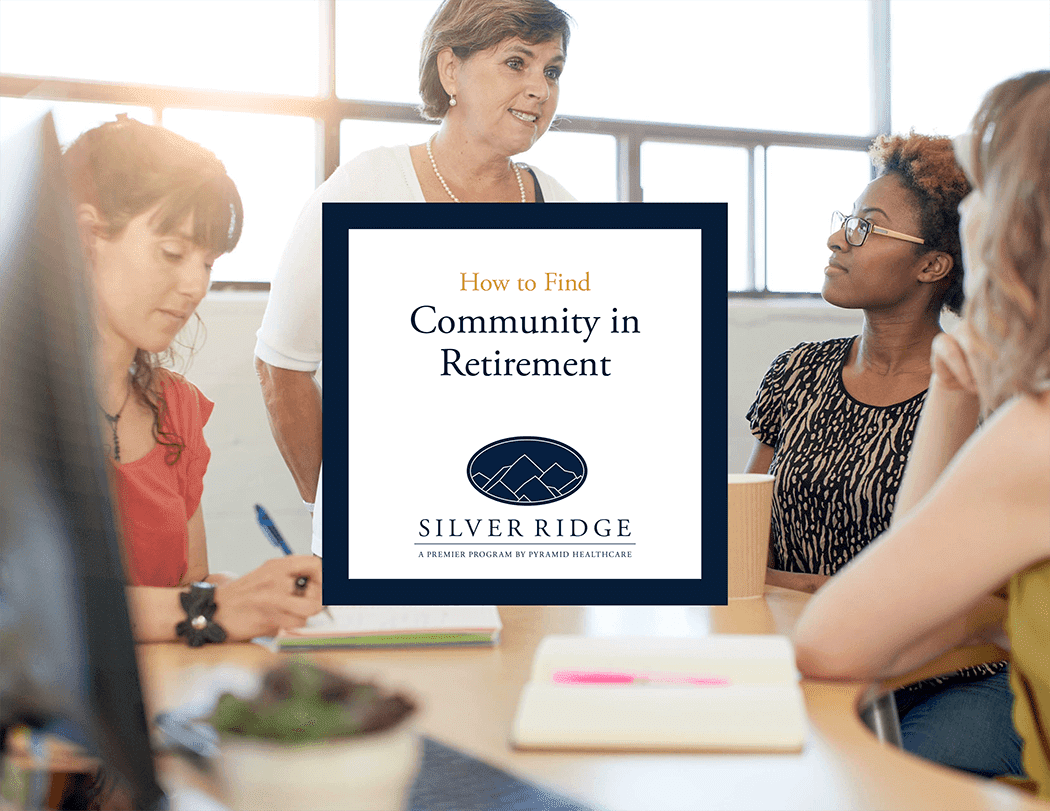How to Find Community in Retirement

Retirement can be tough for people in recovery. There’s a lot more downtime to fill, and you no longer have the daily human interaction that work provided. Boredom and isolation are major concerns in both retirement and recovery, and they can lead to substance abuse and relapse. At the same time, many retired individuals feel a lack of purpose and meaning in their lives, which can also put addiction recovery at risk.
The Substance Abuse and Mental Health Services Administration identifies four major dimensions of recovery: health, home, purpose and community.1 In addition to good physical and mental health and a stable place to live, successful recovery requires a sense of purpose and a sense of community.
You can use your strengths and values to find a sense of purpose through giving back to the community. Giving back opens the door to healthy, supportive relationships in recovery and gives you opportunities to make your community a better place.
Boredom and Isolation in Retirement: What It Means for Your Recovery
Social relationships are central to good health and well-being. It’s a particular problem among aging Americans due to reduced finances and often-limited social opportunities.
Social isolation is a major factor for substance abuse, addiction and relapse, according to a study published in the journal Frontiers in Psychology.2 Feeling estranged from others more than doubles the risk of relapse and makes it difficult to develop a “recovery identity,” which is essential for successful long-term recovery, according to the study.
Isolation isn’t just a relapse risk. According to a study published in the Proceedings of the National Academy of Sciences, social isolation also increases your risk of cardiovascular disease, infectious illness, cognitive problems and heightened inflammatory responses to stress.3 The overall mortality rate of socially isolated people is higher than that of people who have a sense of community with others.
On the other hand, a 2016 study by the Institute for Studies of Religion at Baylor University cites new research that’s finding increased social connectedness affects us at the cellular level to improve healing, health and well-being.4 Being an active member of a supportive community reduces stress, combats boredom and improves your quality of life.
Self-Care is the First Rule
Self-care is one of the most important foundations of recovery. Taking good care of yourself promotes better physical and mental health, which in turn enhances your recovery identity, helps to keep your mood stable and fosters healthy lifestyle changes.
When most of us think of self-care, we think of getting plenty of exercise, eating healthy food, and getting adequate sleep. And indeed, these are the fundamental aspects of self-care. But they’re not the only ones.
Being part of a community is an important piece of the self-care puzzle, as is engaging in activities that enhance your spirituality.
Spiritual endeavors, which involve reaching beyond yourself, are also an essential aspect of self-care. Altruistic activities help you relate to a higher, transcendent power, and this goes a long way toward promoting self-love and self-worth and maintaining long-term abstinence.
Why Give Back to the Community?
The Baylor University study cites a large body of research showing that helping others has a number of benefits for people in recovery.
References:









